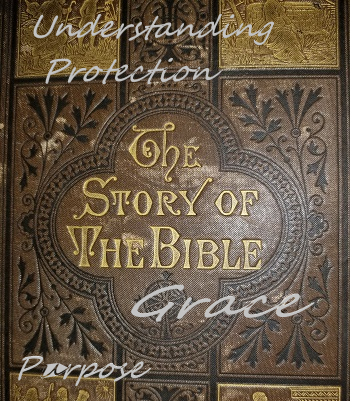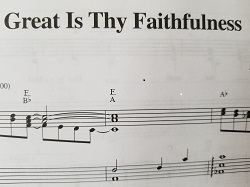Psalm 119:169-171
We are nearing the end of our study in Psalm 119 as we begin the first verse of our last section of eight! As you scroll through this Psalm from the beginning, jot down some key descriptions of God’s Word and its power in our lives. For instance, in verse one and two, as we keep God’s Word (the law of the Lord, His testimonies) we will be blameless and blessed; verse three – we will be righteous. Your list may look something like this:
God’s Word - keeps His children blameless
causes His children to be blessed
the key to righteousness
In Psalm 119:4 we read God’s word is ordained meaning it is appointed, or set in order; it is purposed.
As we move forward through our last section of verses, David’s need for God and his trust in Him continues to be the focus.
Ps 119:169 Let my cry come before Thee, O LORD; Give me understanding according to Thy word.
David cries – a shout of joy or grief, a proclamation, rejoicing and triumph;
Before the Lord – to approach for whatever purpose, to draw near.
The Psalmist cries before God. The intensity of his supplication speaks of his humility before God. He pleads for almighty God to hear his humble request. David would not be able to do this effectively without having a relationship with God. This cannot go unnoticed because it is so imperative to our own relationship with God. First, is it apparent – do we know God as our Father who appropriated His only Son to die for our sin and rise from the dead so that we can have a relationship with God? Second, is this relationship manifest in our life? We must begin here, at the cross in order to relate the truths of God’s word to our life. Without this relationship, we cannot have understanding.
Because of David’s relationship with God, he cries to Him for understanding. This understanding is different from the intellect in the world. It enables a believer to distinguish what is right and wrong – according to God’s Word. This understanding comes directly from God’s written Word. When we read the Bible and pray, God teaches us His ways. The Word provides discernment and instruction, direction and wisdom.
Do we take full advantage of the teaching available to us? Spending time in the Word regularly, attending classes of instruction such as Sunday school, taking part in fellowship opportunities and going to church to hear preaching of God’s Word are available to most of us.
Ps 119:27 Make me understand the way of Thy precepts, so I will meditate on Thy wonders.
It is interesting to note that in all the difficulties David is experiencing, he cries for understanding before he requests God to deliver him from his troubles. This sends a message to us of what is most important – that we know and understand God. I love Paul’s prayer for understanding for the Ephesian believers:
Eph 1:17-19a that the God of our Lord Jesus Christ, the Father of glory, may give to you a spirit of wisdom and of revelation in the knowledge of Him. 18 [I pray that] the eyes of your heart may be enlightened, so that you may know what is the hope of His calling, what are the riches of the glory of His inheritance in the saints, 19 and what is the surpassing greatness of His power toward us who believe.
Matthew Henry’s Concise Commentary says, “Do our hearts, cleansed in Christ's blood, make these prayers, resolutions and confessions our own? Is God's word the standard of our faith, and the law of our practice? Do we use it as pleas with Christ for what we need? Happy those who live in such delightful exercises”. (Emphasis mine)
True understanding of something takes thoughtful consideration and effort.
Pr 2:3-5 For if you cry for discernment, Lift your voice for understanding; 4 If you seek her as silver, and search for her as for hidden treasures; 5 Then you will discern the fear of the LORD, and discover the knowledge of God.
Jas 1:5 But if any of you lacks wisdom, let him ask of God, who gives to all men generously and without reproach, and it will be given to him.
Consider this. Without the gift of God’s grace in the believer’s life, there would be no chance of understanding God’s Word. Intellectual understanding is far different than heart understanding which is only enlightened by God. Remember what Solomon prayed for when asked by God what he most desired?
1Ki 3:5, 9 In Gibeon the LORD appeared to Solomon in a dream at night; and God said, "Ask what [you wish] me to give you." 9 "So give Thy servant an understanding heart to judge Thy people to discern between good and evil. For who is able to judge this great people of Thine?"
Solomon’s prayer for understanding and wisdom was not for the benefit of himself but so that he might fulfill the plans God desired of him in a manner that would honor his Lord.
What is our example of prayer according to Psalm 119:169?
In the next verse, we continue to see the humility of our Psalmist as he requests God’s attentive reply. In verse 169 we read, ‘let my cry come before Thee’. In addition to asking God to hear him, the Psalmist requests God’s favor to hear him.
Ps 119:170 Let my supplication come before Thee; Deliver me according to Thy word.
Consider approaching the mightiest of men and knowing you are unworthy of being in the presence of such a man. You not only find yourself in his presence but also have the opportunity to speak. Most of us would assume a position and character of humility if given this appointment.
David has a relationship with God but fully understands it is only because God has reached out to him, he does not merit the attention of Jehovah because of his own accord. We can imagine David saying, ‘please hear me, please regard my prayer’. Previously, the Psalmist asked for understanding, now he asks for God to defend and even rescue him – according to His word.
David does not have a cleverly devised scheme in being delivered from the onslaught of his enemies, he trusts in God’s plan. He desires to be helped according to God’s will.
In Genesis chapter 32, we have recorded for us a similar request to God from Jacob (Ge 32:9-12).
The word supplication, used in verse 170, speaks of making an appeal to God, an earnest request. This is asked as a favor of God’s grace. When we go before someone with an appeal for something, we are asking for acceptance. As our understanding of God grows, the realization that we can even be in His presence is astounding!
Perhaps David is thinking ‘please deliver me and protect me from my adversaries, but not according to my way because I know it is flawed, but according to your righteousness’.
How do we approach God? Is it with a heart that knows we are undeserving of his mercy? Do we request His plan for our lives? Do we praise God for His instruction and answers?
Ps 119:171 Let my lips utter praise, For Thou dost teach me Thy statutes.
It is only because of God that we know Him. Because He has chosen to reach down and touch us with His grace, and bestow His mercy upon us, we can approach His word with a heart of gaining understanding. For this we are to praise Him!
Consider the numerous scholars of the bible. Many years of analyzing words may go into attaining a degree of biblical study, yet without the Holy Spirit of God, there is no real understanding. Intellectual knowledge does not change a soul.
David, our Psalmist, is a shepherd boy turned giant slayer who became king. However, his most treasured identity lies in the fact that he is God’s anointed (1 Sam 16:12-13).
We have the certainty that God will teach us His statutes. David says in Psalm 119:171, “Let my lips utter praise”. How do we use our lips? Do we pay attention to our language, our speech, our talk and our words? Do words of praise come forth from our mouth?
Ps 119:7 I shall give thanks to Thee with uprightness of heart, when I learn Thy righteous judgments.
The 1599 Geneva Bible Notes says the phrase ‘my lips shall utter praise’ means to pour forth continually. One commentary says this phrase means ‘praises streaming forth as from a bubbling, overflowing fountain’ (Jamieson-Fausset-Brown Commentary).
David expects that God will teach him His statutes. We can be confident that God will teach us about Himself through His word. Because of Him we have understanding and knowledge of who He is and what He desires for those who earnestly follow Him. We can have confidence in the direction He shows us. This should lead us to praise Him!
Read Paul’s words as he writes to the church in Ephesus.
Eph 1:9-12 He made known to us the mystery of His will, according to His kind intention which He purposed in Him 10 with a view to an administration suitable to the fulness of the times, [that is], the summing up of all things in Christ, things in the heavens and things upon the earth. In Him 11 also we have obtained an inheritance, having been predestined according to His purpose who works all things after the counsel of His will, 12 to the end that we who were the first to hope in Christ should be to the praise of His glory.
If the truth above does not lead us to praise, we need to seriously reconsider if we are God’s child.
Ps 71:17, 23 O God, Thou hast taught me from my youth; and I still declare Thy wondrous deeds. 23 My lips will shout for joy when I sing praises to Thee; and my soul, which Thou hast redeemed.
“The heart taught of God, cannot contain itself, but breaks out in praise and singing. This would be the effect of divine illumination, and this would be felt to be a privilege, yea, and a high duty. Have you not found so, believers, specially on common occasions? Be assured, such utterances are the sign of a renewed heart; yea, of a heart filled with all gratitude of right feeling.” --John Stephen, in the Treasury of David
Ps 44:8 In God we have boasted all day long, and we will give thanks to Thy name forever. Selah.
Jer 9:23-24 Thus says the LORD, "Let not a wise man boast of his wisdom, and let not the mighty man boast of his might, let not a rich man boast of his riches; 24 but let him who boasts boast of this, that he understands and knows Me, that I am the LORD who exercises lovingkindness, justice, and righteousness on earth; for I delight in these things, "declares the LORD.
God teaches us His commands. His instruction gives us understanding on how we are to live in a manner pleasing to Him. God’s word instructs us to praise Him continuously. Are the words grumble and complain and accusation and blame descriptive of our speech? Do we often hear ourselves speaking of what others have done wrong or what they should be doing, instead of how we ourselves should be living? Do we offer a heart of discontent or a hymn of praise to God?
God will give us the understanding we need if we ask. He will hear our prayers and protect us. He will teach us His commands. Praise Him for His great grace!




